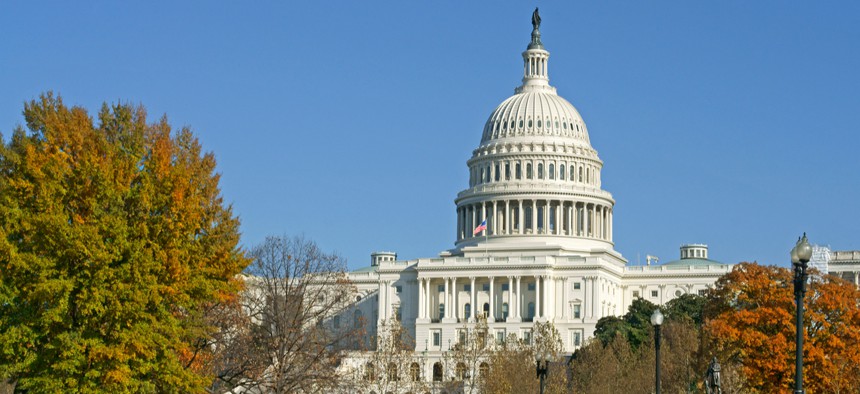As States Monitor Federal Shutdown, One Could Run Out of TANF Funding in February

The National Governors Association is urging Congress to act quickly on TANF reauthorization. Shutterstock
The Temporary Assistance for Needy Families program's authorization expired in December, prompting states to use limited leftover funds.
Update: The Senate approved legislation on Tuesday to extend the federal welfare program for six months, sending it to President Trump for consideration.
Original story:
The National Governors Association is urging the Senate to quickly move legislation to extend the federal welfare program that expired in late December along with the partial government shutdown.
The lack of authorization for Temporary Assistance for Needy Families hasn’t been a problem during the shutdown so far, as states have been able to cover the costs, in part with leftover funding. But an NGA letter from Oregon Gov. Kate Brown, a Democrat, and Massachusetts Gov. Charlie Baker, a Republican, says one state expects this money to run out in February.
That state is North Carolina, said James Nash, a spokesman for the organization. Some states are likely to be able to keep cash welfare payments going to families that need them for several months, but the prolonged limbo for the program is a problem, noted the letter sent Sunday to the Senate and House leadership.
“States’ abilities to continue covering these costs may change based on caseload and enrollment,” Brown and Baker wrote. “Payments to both individuals and families, in addition to support services funded by TANF, are at risk unless funding is restored.”
The House, now led by a Democratic majority, recently passed a bill to extend the program through June 30, but it hasn’t yet been taken up by the Senate. In their letter, the governors urged Congress to pass the short-term bill and then work on a longer reauthorization for the $16.5 billion block grant program.
“It is untenable for states to administer effective TANF programs given the current uncertainty,” they said.
Earlier this month, the Trump administration extended federal food aid programs through February despite the shutdown. The U.S. Department of Agriculture asked states to apply for food stamp benefits early, which they have been doing in order to cover recipients for the month. But it is unclear what happens with that program that helps feed 38 million people each month if the USDA isn’t funded by the end of February.
Part of the federal government has been shutdown over President Trump’s insistence that $5.7 billion for a border wall with Mexico be included in a temporary funding bill, which Democrats have rejected as wasteful spending. Trump on Saturday offered his proposal to end the shutdown, telling Democrats that he would extend some protections for immigrants currently in the country in exchange for the wall money. But House Speaker Nancy Pelosi has rejected that proposal, saying they should reopen the government and then talk about border security.
The shutdown, which entered its 31st day on Monday, has affected around 800,000 federal workers, with more than 300,000 furloughed and the rest working without pay. In recent days, the Trump administration has called back thousands of workers in agencies from the IRS to the USDA to work without pay.
Laura Maggi is Managing Editor for Route Fifty and is based in Washington, D.C.
NEXT STORY: Blame Sacramento






